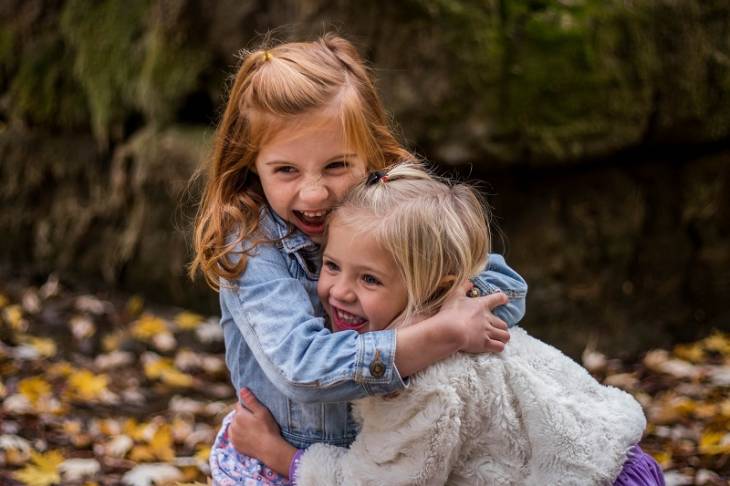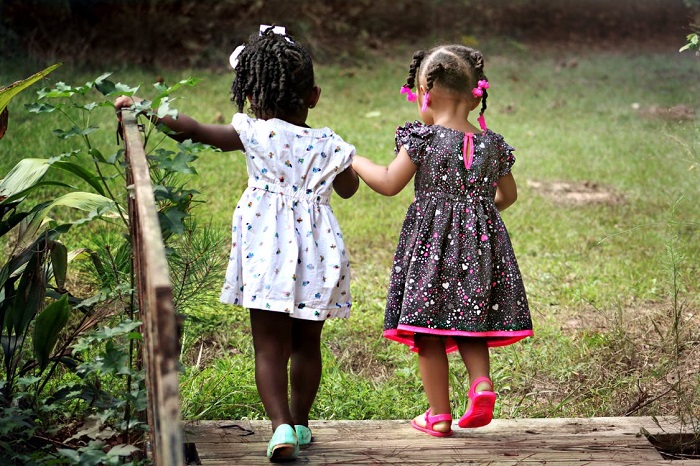Key Values Adults Can Learn from Children

Being a parent, teacher, or just being a part of a child’s life is seen to have some responsibility to teach them values, information, and to act as a role model. This gives the child a good start to life and potential for the future.
However, it is never viewed as working both ways. What if there are things children could teach you?
It is always thought that children will look up to adults and learn from them, but without a doubt, there are many things that we as adults can learn from children.
Here're are some of the main lessons we can take from a child's outlook on life:
1. Forgiveness
The playground can be a competitive place, and arguments and disputes are bound to happen. The best part about this though is that the children tend to forgive and forget, perhaps quicker than an adult would do so.

Often, time spent mulling an argument over internally isn’t a positive approach, as we are focusing on the dispute itself rather than weighing out a solution for it.
Whether we feel at odds with a colleague or a loved one, having the ability to process this feeling and forgive rather than carry a grudge can prove extremely beneficial — allowing us to get on with the important things in life without any hate or prejudices.
2. Honesty
Another value that we can pick up from the young ones is honesty. Children are not afraid to speak their mind, and they have no real filter — but of course, they’re excused for naivety!
Although we don’t want to be rude to one another, having some honesty and saying exactly what you think can be beneficial for all parties. At work it can lead to the best results possible, as criticism leads to improvements and people will consider one another as more trustworthy.
Sometimes, we might feel that something on our mind wouldn’t be warmly received if we expressed it out loud, but taking the plunge and being honest could actually prove helpful!
For example, by doing so at work, you might come up with an idea or approach that none of your colleagues have considered before!
3. Tenacity - not letting anything stop you
We have a tendency to cancel plans, Got a sore finger? — Cancelled! It’s raining? — Cancelled!
Children, however, don’t let anything stop them. If there’s a bit of rain, just grab some waterproofs. If they’ve got a sore finger? Just get someone to kiss it better. If we did this, we would enjoy our time so much more, as kids never cease to be having fun.

Also, be sure to try new things — get out there and explore! No excuses!
4. Enthusiasm
Mention anything to a child and they generally will get excited for it. If they’re doing an activity, they will try to complete it as best as possible to try and be the ‘winner’.
In doing so, they spur each other on to do the same. How useful would this be for us to do too?
It will make you strive to be the best you can possibly be, as well as help encourage everyone around you to do the same.
5. Live in the moment
Children have nothing to worry about, no deadlines coming up, nothing waiting around the corner to surprise them. How do they act because of this? They make the most of every moment, looking to have as much joy as possible in the moment.
Our youngsters tend to have a shorter outlook on life, and by not fretting about the future they simply spend their time learning and having fun!

We can get too bummed down by deadlines and upcoming things, so we often forget to enjoy ourselves in the present.
Take a break from it and have fun — go somewhere, see your friends, or take up a sport, it’s up to you.
6. High esteem - not afraid of what others think
Children often don’t take criticism from peers; they hold themselves in high esteem and don’t care what anyone has to say about them.
But in adulthood, we experience a lot of nerves and are quite self-conscious as to what other people’s opinions are about us.
If we can adopt the mindset of only caring about what you think of yourself, people will be much more comfortable and outgoing.
In conclusion
These are good values for everyone to follow, but if you think of some as unachievable, ask yourself how children can do it without instruction. It just comes naturally to them.
So, maybe we should take a leaf out of their book.





















